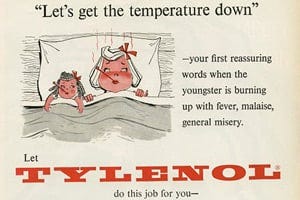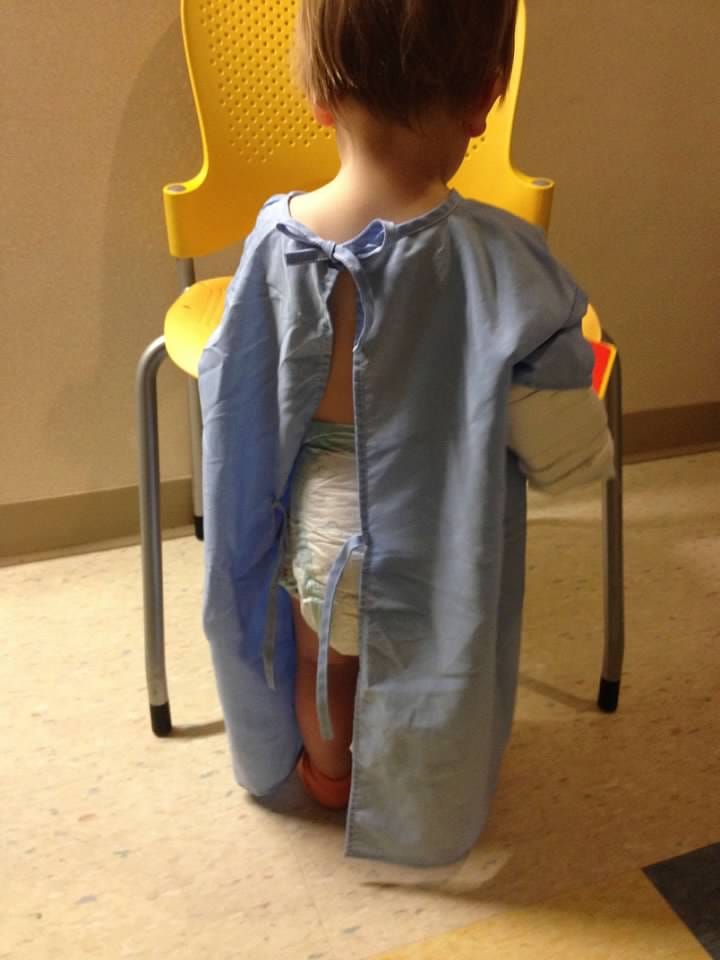As I mentioned in my previous post, at Thursday’s ACIP meeting committee member Dr. Camille Kotton said —
“All of what we do in medicine is to weigh risk versus benefit.”
Many of the conversations around the safety of the COVID vaccines are happening as if the COVID vaccine is the only medical treatment that has risks associated with it.
This is not the case.
Did you know —
That the rate of false-positive mammograms for women 40-49 years old is 170 per 10,000 mammograms (these women are told they probably have breast cancer when, in fact, they do not have breast cancer)?
Drugs used to treat cancer can cause infertility? hair loss? loss of appetite? or other types of cancer?
A trip to the pediatrician could expose your child to a deadly virus - like rotavirus - and land them in the hospital with dehydration and kidney failure?1
Or that if taken incorrectly, Tylenol can cause liver failure or death?
Knowing this … would you advise me to skip my annual mammogram because of the risk of having a false-positive result? would you tell me not to treat cancer because of the risk there is a risk of a secondary cancer diagnosis? would you skip taking your kid to the doctor because there is a small risk of exposure to other diseases? would you recommend I skip taking Tylenol to reduce pain or fever because of the risks associated with the medication?
In all likelihood, we’d agree that the benefit of a mammogram outweighs the risk of a false-positive result; treating cancer is worth the risk of side effects; taking your kid to the pediatrician is necessary; and Tylenol is a welcome relief when you are in pain.
In each case, we are weighing the risk vs. benefit.
Let’s take a deep-dive into Tylenol —-

Tylenol is known as the drug that “hospitals use most.” Or is “recommended by pediatricians.” But did you know…
~150 Americans die each year from Tylenol/acetaminophen poisoning?
And that there are more than 78,000 ER visits and 33,000 hospitalizations due to acetaminophen poisoning?
Or that Acetaminophen poisoning is the leading cause of acute liver failure?
There are clear risks associated with taking Tylenol - that’s key ingredient is a chemical called acetaminophen. This drug can be toxic when metabolized/broken down in the body.
In the picture above, we see the chemical structure of acetaminophen at the top. When you swallow Tylenol, you are ingesting this chemical which dissolves quickly in your stomach. A small amount is unchanged in your body and excreted in your urine. About 90% of the acetaminophen — abbreviated as APAP in the picture above — is broken down through metabolic processes, which produce non-toxic metabolites (blue circle above). Somewhere between 5-9% of the acetaminophen that is ingested is broken down through a process directed by a set of enzymes (CYP in the picture) that produce dangerous by-products that can cause liver failure or death (called hepatocyte necrosis in the picture above).
Despite this risk, Tylenol is recommended for all, including our children, the elderly, and pregnant women. While the drug is safe, as in most of the time when taken as directed there will be few adverse effects, there are risks — as in Tylenol is not safe 100% of the time for 100% of the people who take the drug.
We rarely talk about the dangers associated with Tylenol.
And we rarely talk about the fact that the drug acetaminophen is in a boatload of other over-the-counter medications —
So one could easily overdose - take more than the recommended daily dose of acetaminophen - by taking a combination of Tylenol and Benadryl. Or Nyquil and Robitussin. The combinations are endless. As are the dangers/risks.
What’s the take-away here?
That “all of what we do in medicine is to weigh risk versus benefit.”
Taking Tylenol, getting a mammogram, undergoing chemotherapy treatment, visiting the pediatrician, and receiving your COVID vaccine all have huge health benefits. And all are associated with some level of risk.
Each is safe and recommended because the benefits outweigh the risks.
As we engage in conversations about the COVID vaccine and rare adverse health effects, we need to recognize that rare adverse health effects are not limited to just the COVID vaccine. Many of the medical screening tests, practices, and medications we value and use on a daily basis are riddled with adverse side effects and rare risks.
Medicine is truly miraculous, but it is not without risk.
If you are willing to trust the FDA when it comes to Tylenol dosing, mammograms, and cancer treatments — you need to trust the FDA when it states that the COVID vaccines are safe & effective.
True story — my youngest contracted rotavirus in the pediatrician’s office when he was 15 months old. This is a picture of him in isolation at Children’s National Hospital. Can you see the little IV on his right arm? It took 7 days of IV fluids to get him rehydrated and his kidneys working properly. And please note: the rotavirus vaccine was not approved when he was this little so he suffered from a disease that is now vaccine-preventable.







The examples you provide make it clear that understanding the risk to benefit ratio is something people are faced with in many aspects of their healthcare. Hopefully this argument will help persuade some who are reluctant to get vaccinated. Thank you for your continued efforts to educate the public on this crucially important issue.